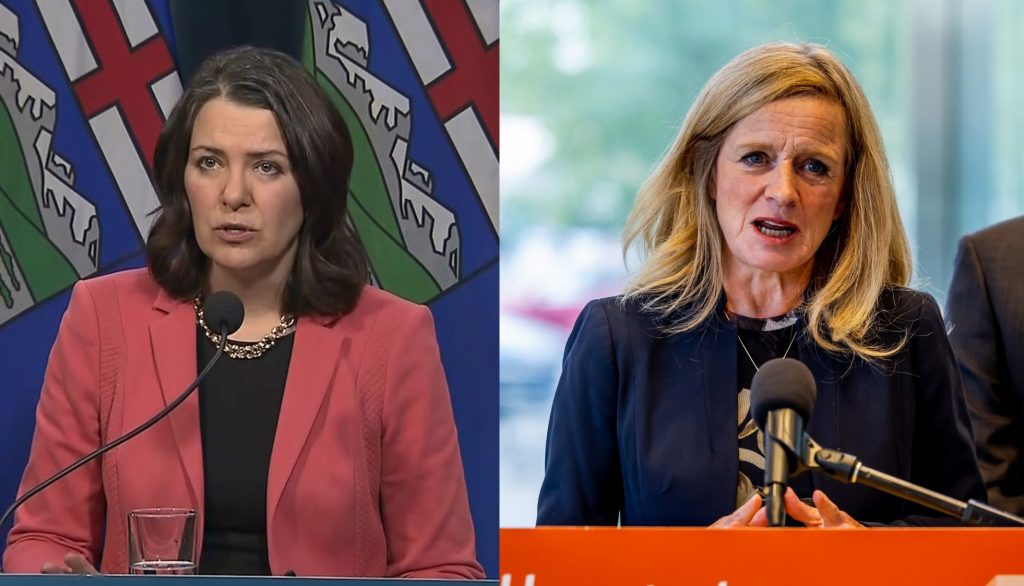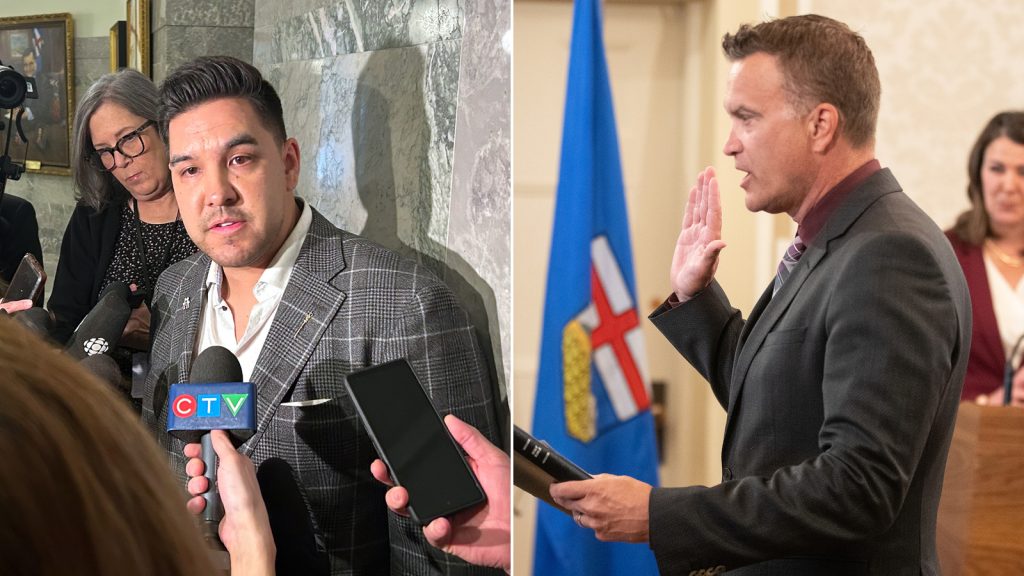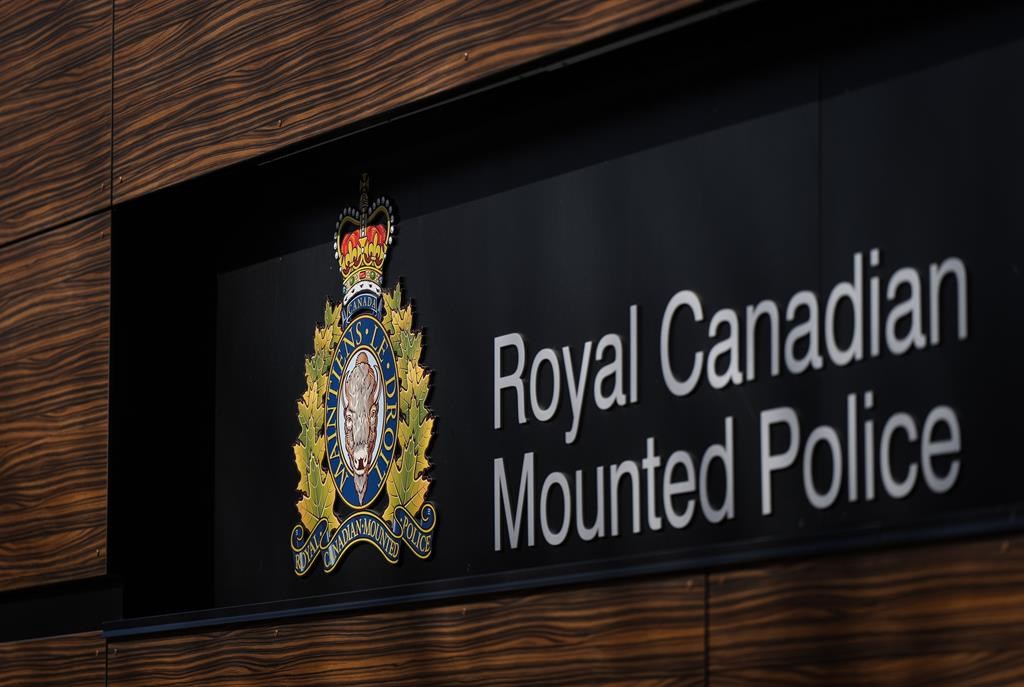Media questioning politicians: the debate rages on

Posted April 18, 2023 4:08 pm.
Last Updated April 18, 2023 5:03 pm.
Just how many questions should a political leader take during a press conference and from whom?
That topic surfaced again Monday. Alberta NDP Leader Rachel Notley confirmed she will not be taking questions from the Western Standard for the time being, saying they first need to apologize and retract editorials she believes crossed the line.
“Unfortunately, your publication has been engaging in very homophobic, discriminate, hateful editorial positioning as it relates to some of our caucus members. Difference of opinion is fine, but hateful discrimination promotion is not,” said Notley.
The issue of access comes after Premier Danielle Smith introduced a new policy that allows each media outlet to just one question at her press conferences. Smith claims it’s intended to ensure more questions get answered during election season.
However, Notley claims it’s intended to limit Smith from making potential self-harming comments.
“This is part of a long-standing effort and growing effort on the part of this premier to shield herself from accountability and transparency,” she said.
That new policy leading up to the spring election is also raising concerns among free speech experts.
“There’s only one reason a politician would do that and that’s so they don’t have to answer the media’s questions,” said Jim Turk, director of the Centre for Free Expression at Toronto Metropolitan University.
“Oftentimes you’ll ask a politician a question so and they don’t quite answer it so the follow-up is critical. So they’ll say ‘excuse me premier I asked this or can you elaborate on it’, that’s how the public gets to know things,” he explained.
RELATED:
- Media question restrictions apply only to Alberta premier, cabinet ministers say
- Alberta premier broadens restrictions on reporter questions to include media outlets
- Alberta Premier Smith, with election looming, announces new limits on media questions
But this journalism professor argues media needs to do a better job explaining Smith’s policy, adding many news consumers don’t see an issue.
“I think that journalists will come across as complainers,” said Neill Fitzpatrick, assistant professor at MacEwan University.
“They (news viewers/readers) are saying what’s the big deal? The media can ask questions. They can ask a question and she’ll answer it, she says she’ll answer a question on any topic, why do they need a follow-up?”
Deputy Premier Kaycee Madu argues the premier’s new policy is merely to ensure no media outlet is overlooked during election season.
“More ethnocultural media wanting to ask questions ahead of the election, so we are taking steps so we can hear from more media folks than usual,” said Madu.
Critics are also pointing to Notley’s decision to shut down questions from an online site she claimed wrote homophobic editorials about a candidate, arguing she’s limiting questions like Smith.
“As opposed to someone saying you treated one of our candidates so badly and in such an inappropriate way that we’re not going to let you in. I don’t agree with that strategy but I don’t think it’s equivalent,” said Turk.
But Notley’s stance against the Western Standard raises another question.
“Who counts as a journalist, especially in this era of social media and subscription of some individual citizen journalists?” asked Turk.
Fitzpatrick adds, “They have to understand they aren’t the only game in town, and they have to win the trust of consumers and to explain to consumers why it’s important to get your news from a trusted source.”
Politicians railing against the media dates back nearly as far as the printing press. But accusations of fake news have increasingly become a political rallying cry.
“I think Donald Trump started it all when he started treating the media like garbage when he was elected president. That’s continued and spread because some politicians and others see this as a successful way to deal with the media.”
Whether the media can regain lost trust remains to be seen, but it will be an uphill battle.
“I ask my students who are aspiring journalists how would you overcome this trust issue and a lot of them are unsure because some of them aren’t 100 per cent sure they trust media,” said Fitzpatrick.
Turk added, “The media in Canada is in a weakened state, and that undermines our democracy, and that only makes matters worse.”








